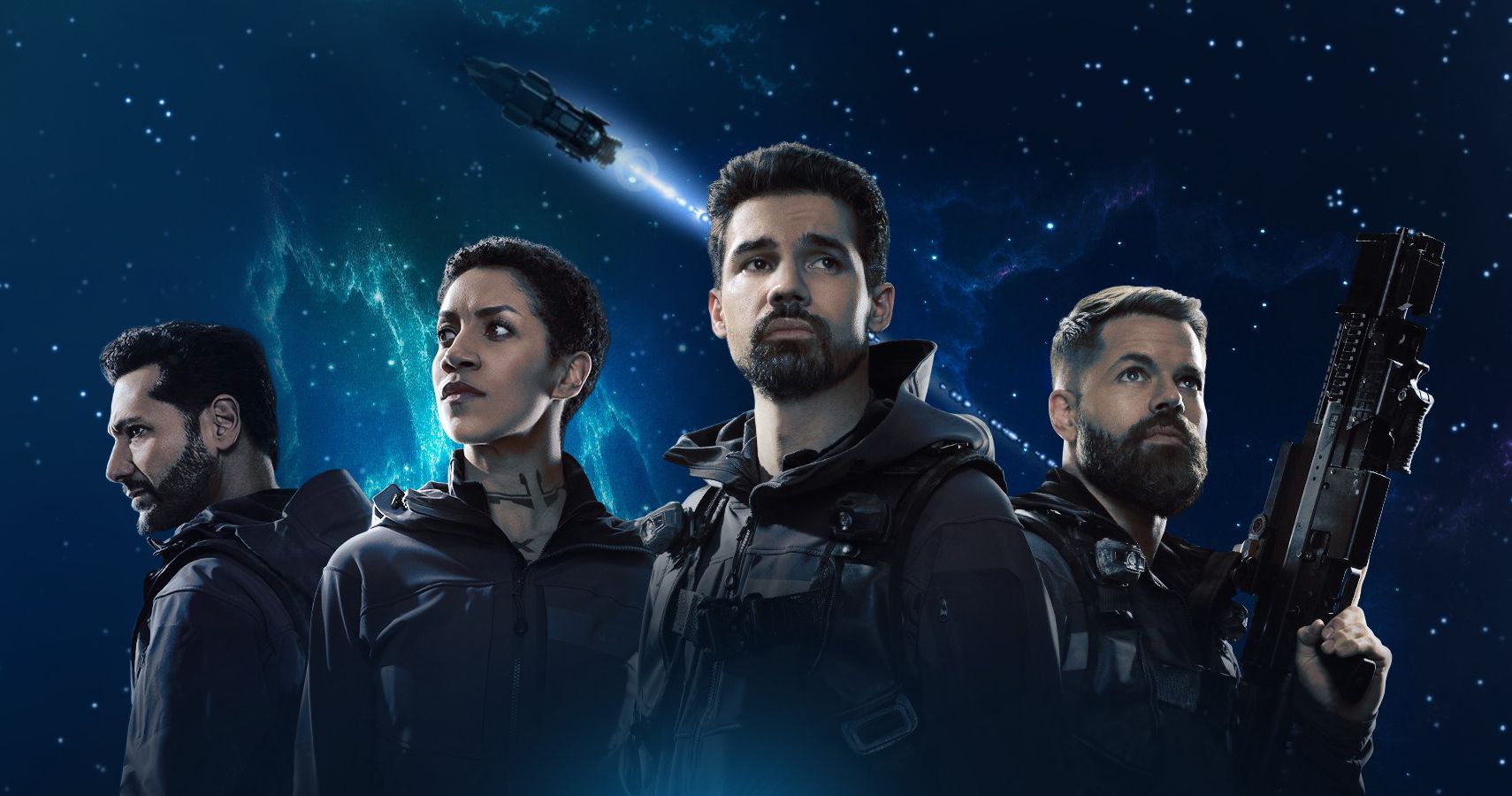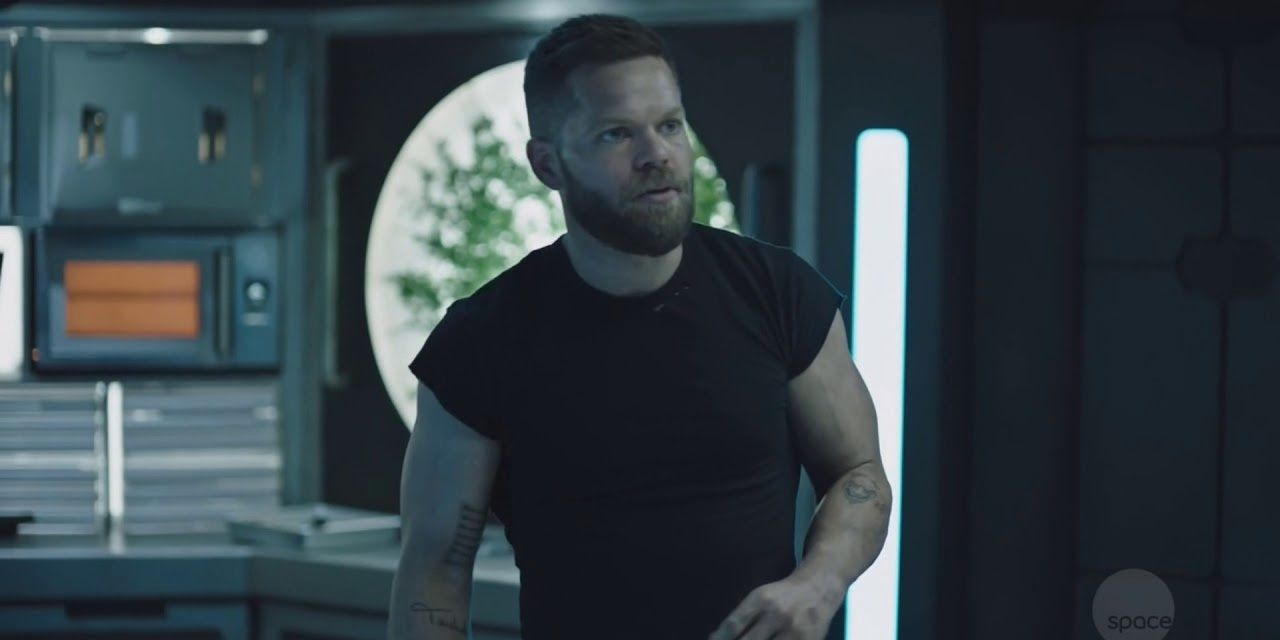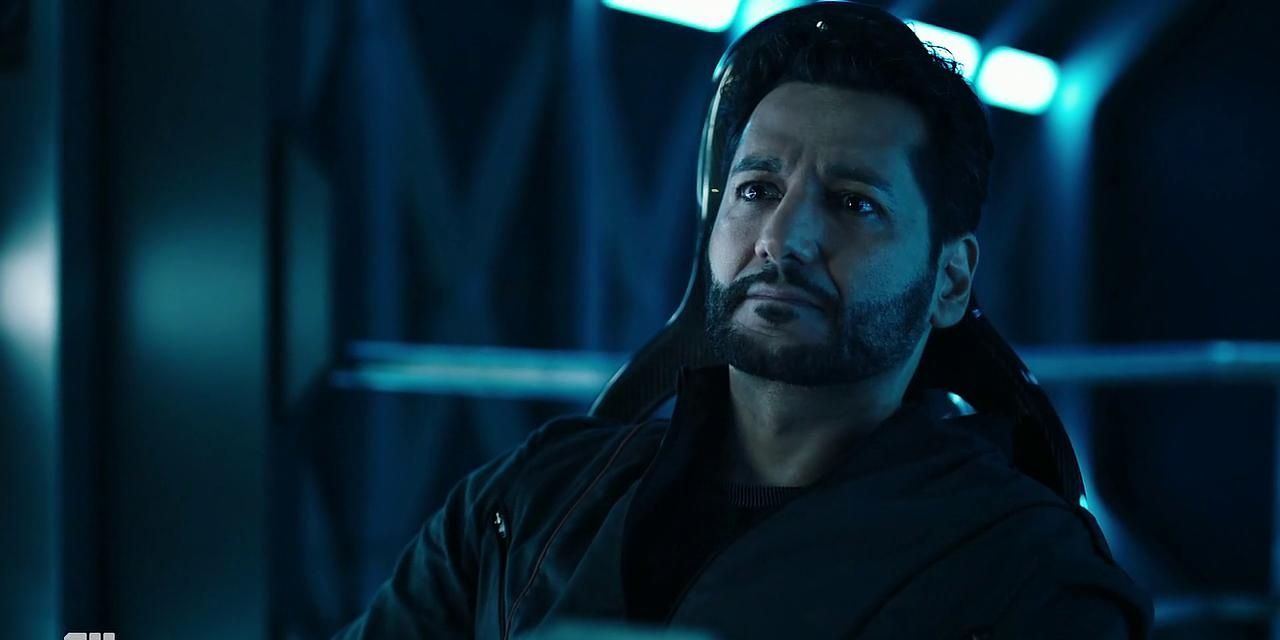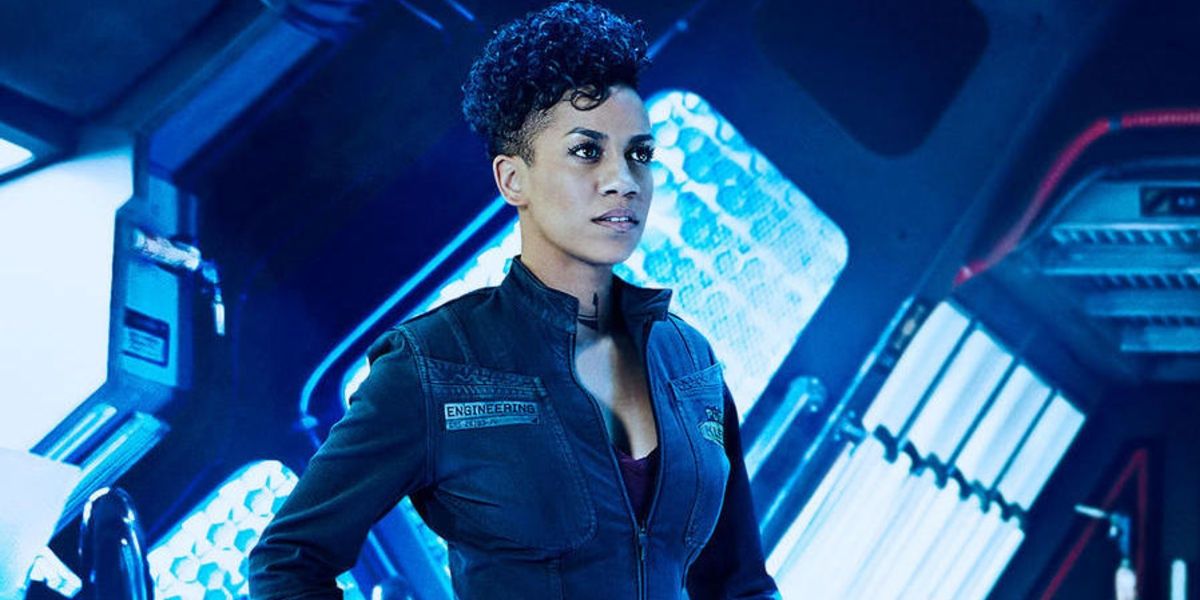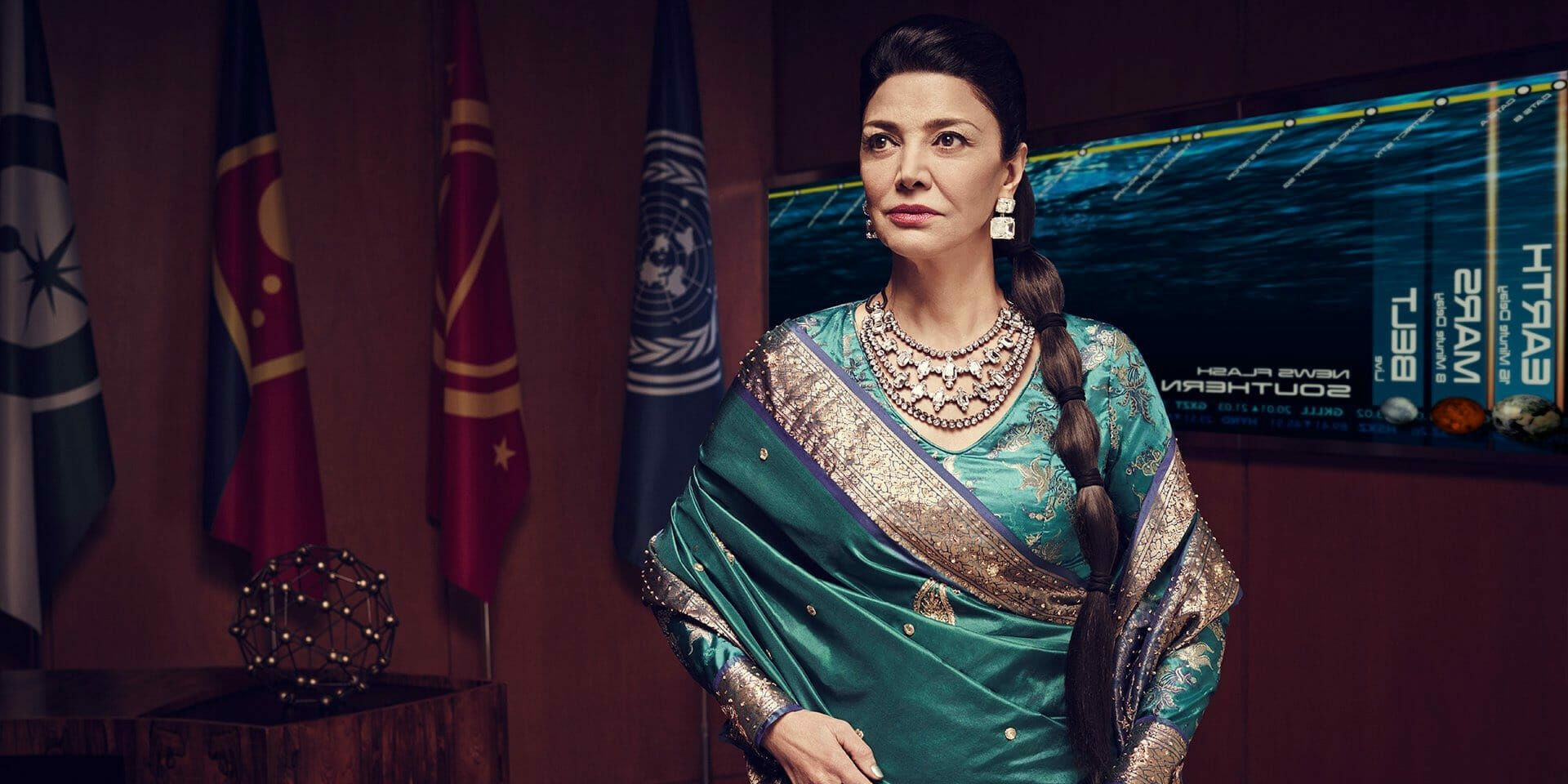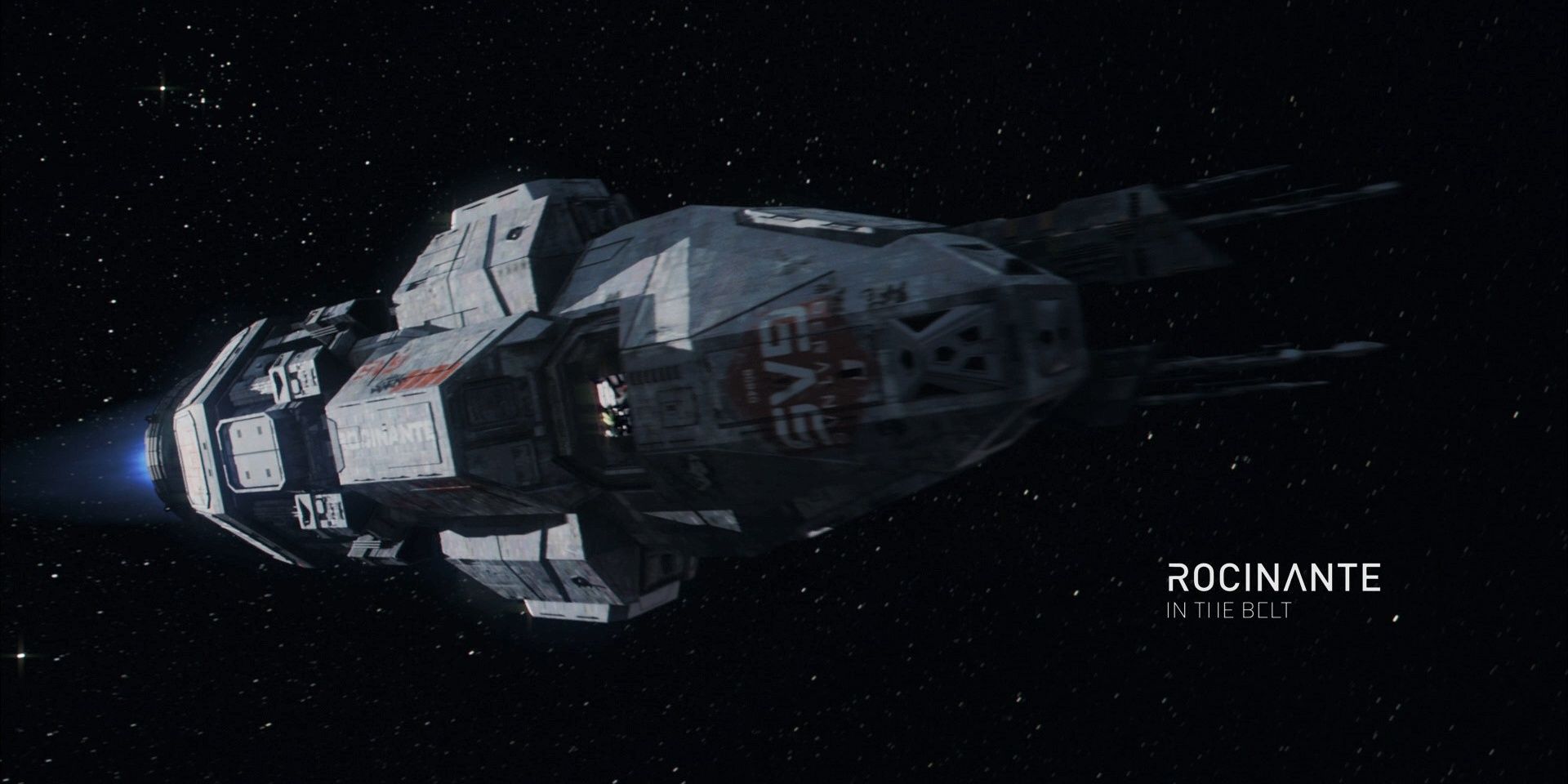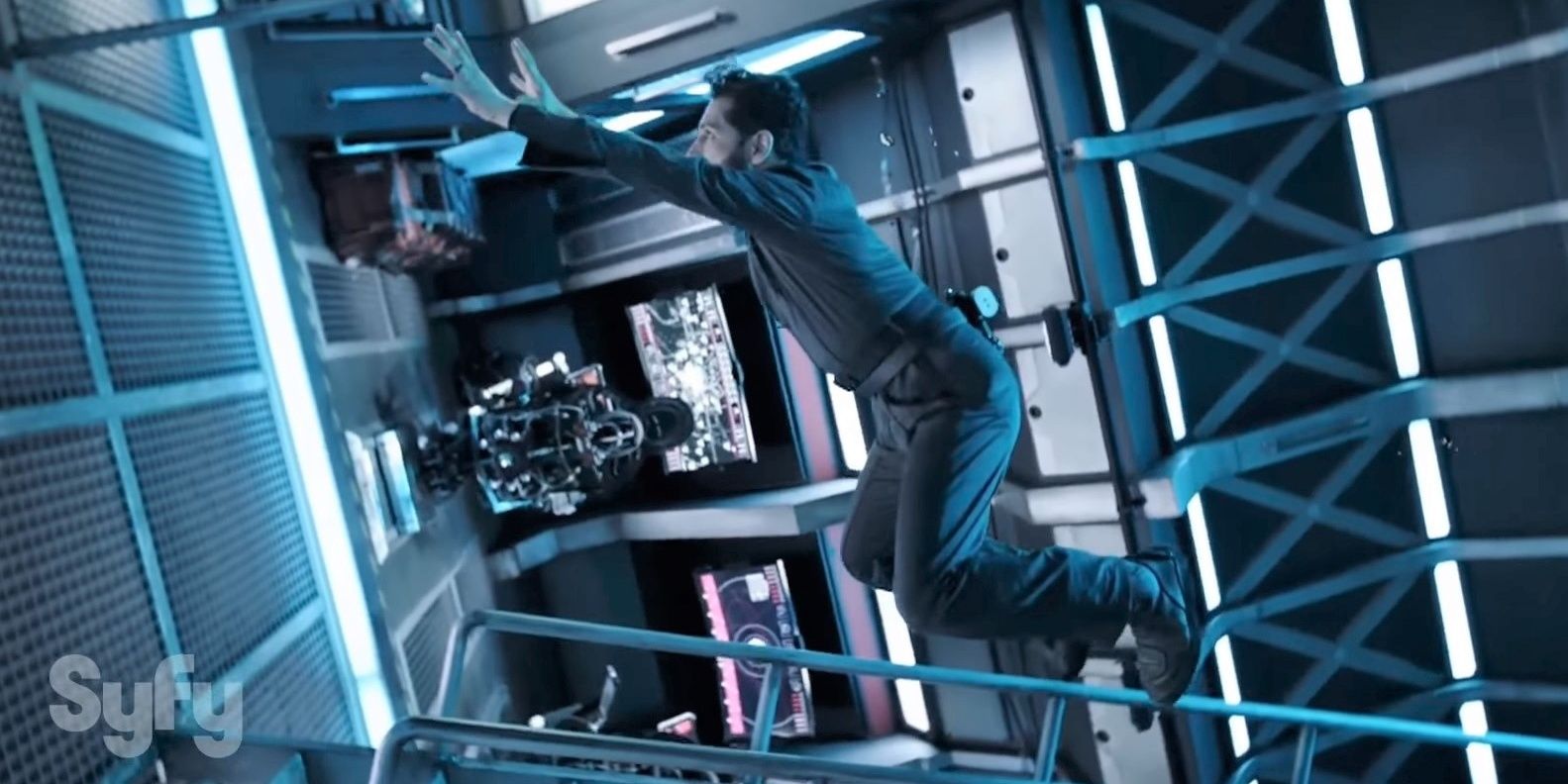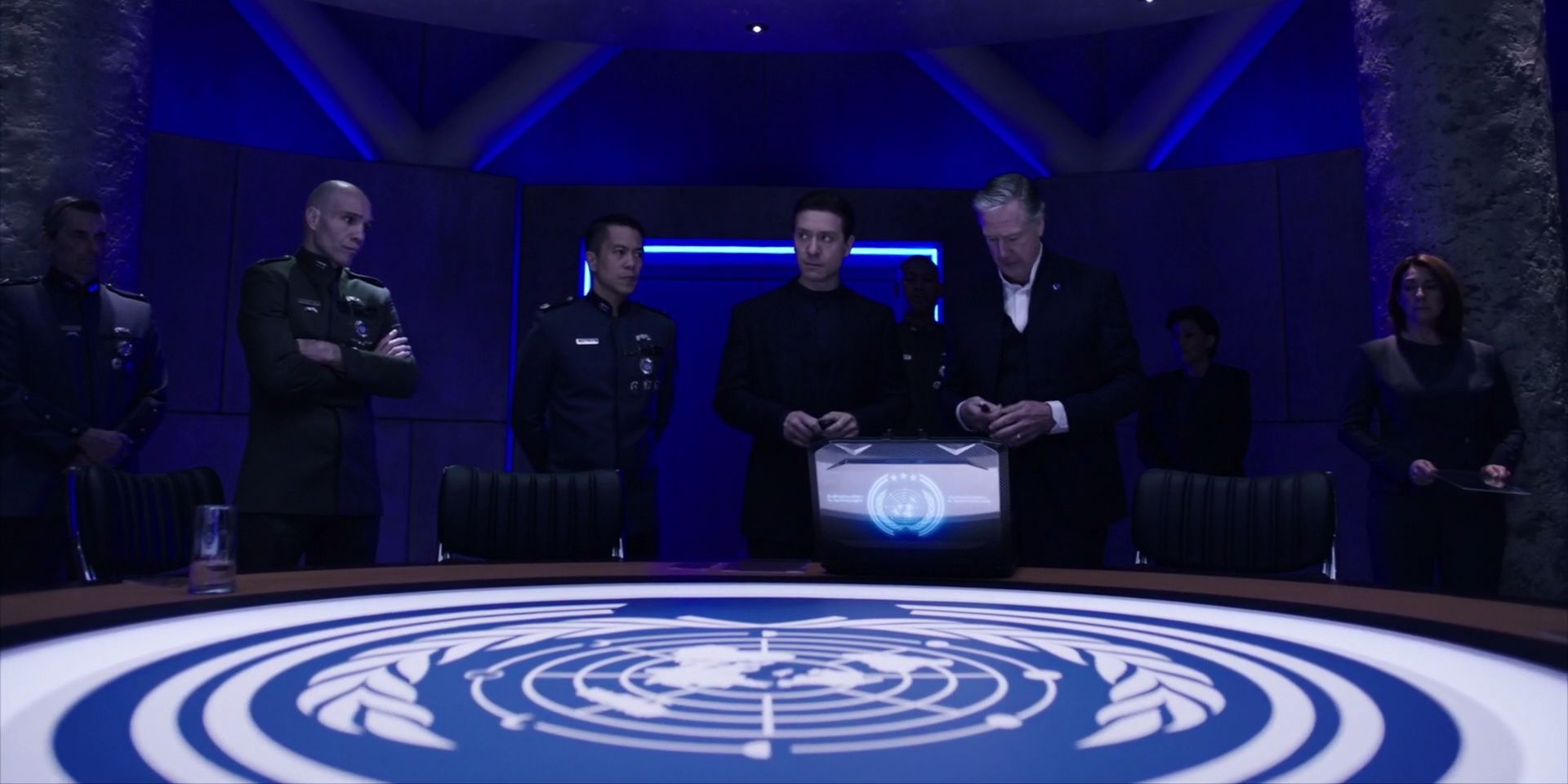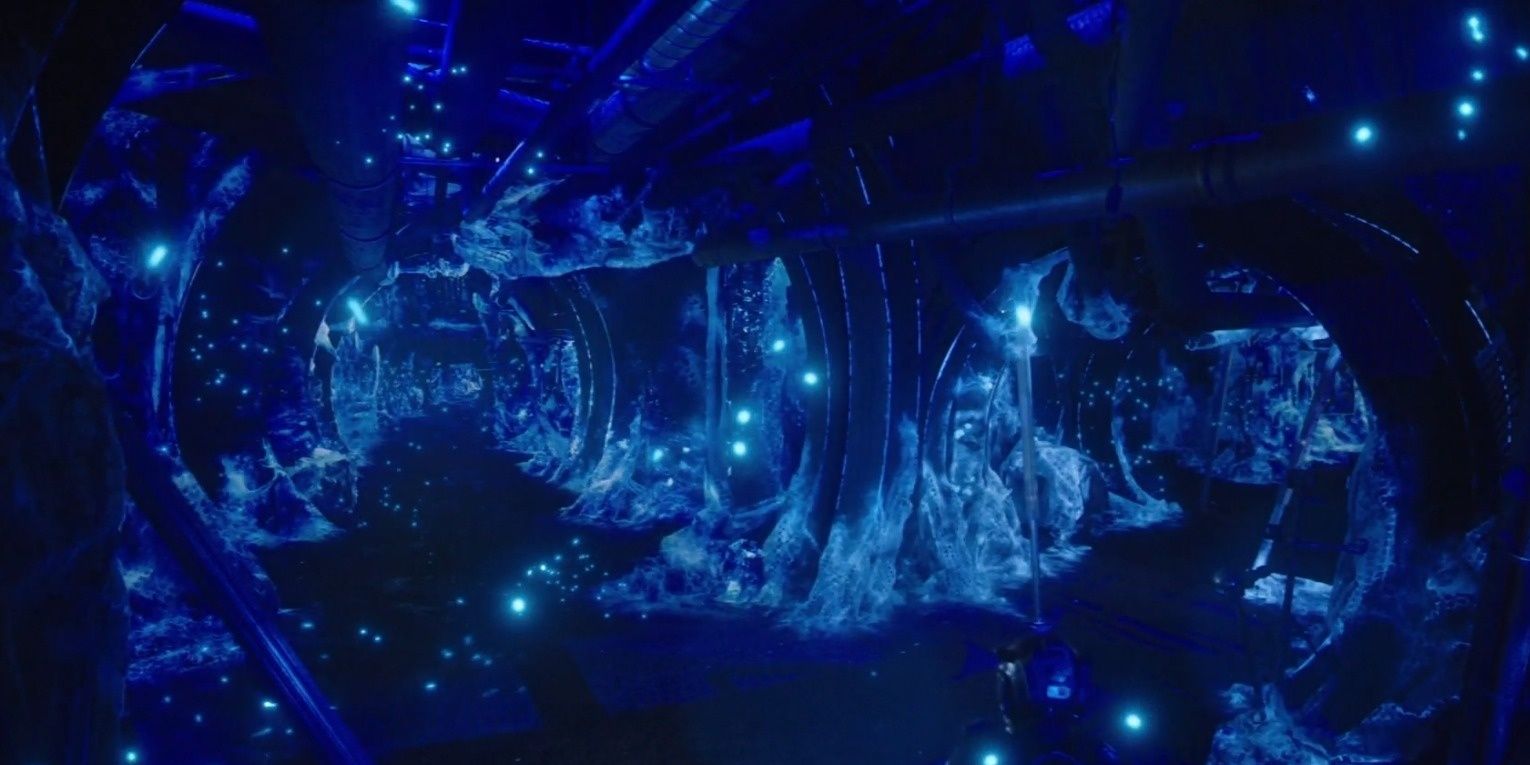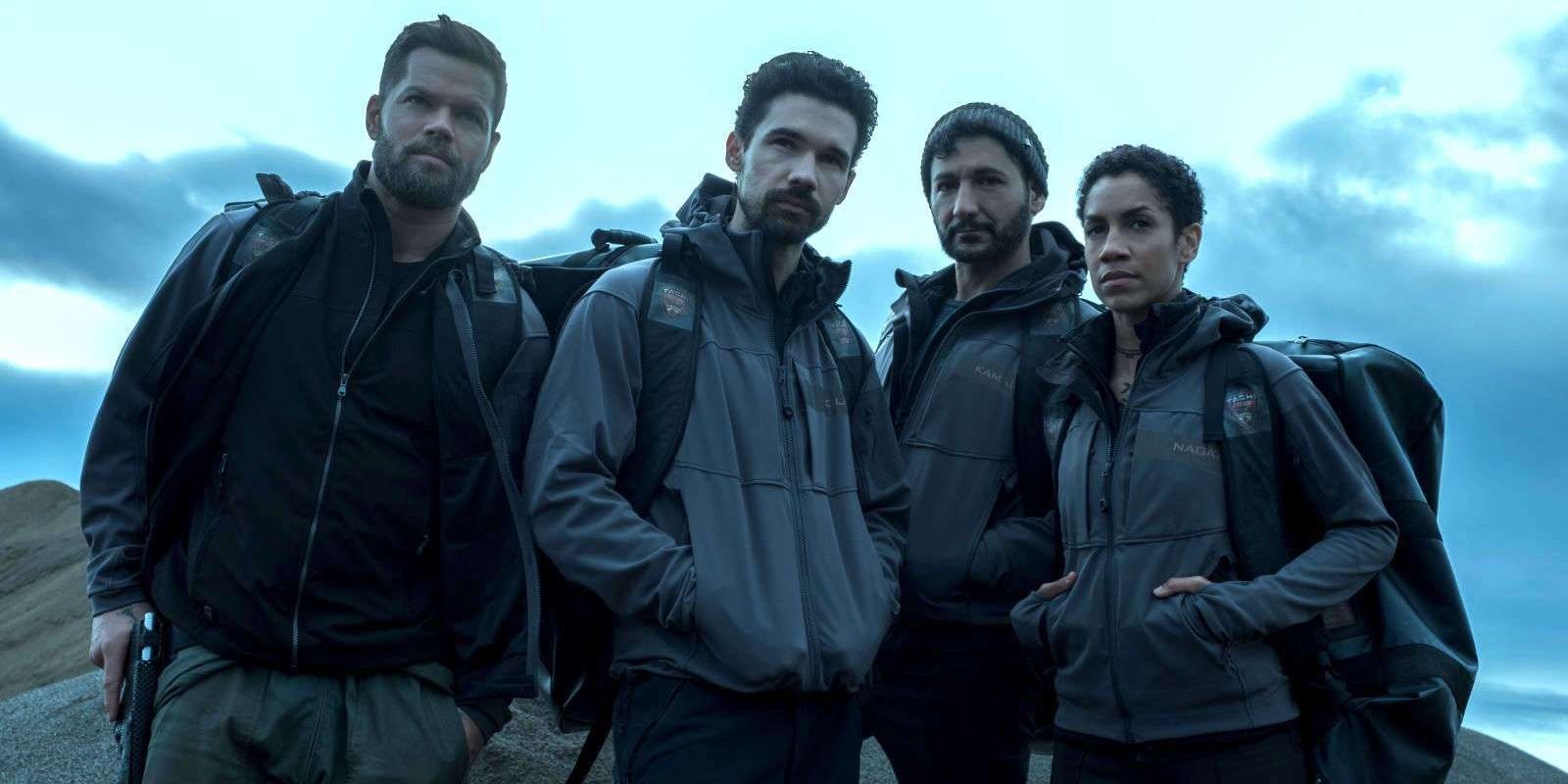The Expanse is a science fiction television show based on the novels by James S. A. Corey. It ran on SyFy for three seasons starting in 2015 but was canceled. Luckily, it was picked up by Amazon, and the fourth season came out on Prime in December.
It features our solar system hundreds of years in the future. Humanity has colonized Mars, several moons, and the Asteroid belt, eventually developing different governments and cultures for each. The show follows characters from each of the three big powers as they navigate intra-system politics on levels both grand and small. Here's why you need to start watching it immediately.
It Has Flawed Protagonists
Over its four seasons, The Expanse follows seven main protagonists. Each of them has an important role in the plot, but each of them has their personal demons to battle as well. James Holden (Steven Strait) is the main protagonist. He's inadvertently thrust into a leadership position both in the solar system and of the three-person crew of his ship, the Rocinante. He struggles with the belief that he's not good enough. One of his crewmen, Amos (Wes Chatham) is borderline sociopathic, but somehow is also one of the most loyal, protective, and kind characters.
Bobby (Frankie Adams) is a Martian Marine who struggles with her anger. Naomi (Dominique Tipper) is a Belter whose political opinions are always evolving. Chrisjen Avasarala (Shohreh Aghdashloo) is the leader of Earth who struggles with her love of power. Alex (Cas Anvar) is the Martian pilot of the Rocinante whose guilt over leaving his family to travel the stars can be overwhelming. We could go on, but the point is that each of the protagonists has their flaws that make them interesting and nuanced characters.
It Has A Diverse Cast & Crew
Race doesn't seem to be a factor in the future that The Expanse depicts. The crew of the Rocinante includes a man of South Asian heritage (with a Southern accent!), a Black British woman, and two white men. Additionally, Bobby is played by a New Zealand-Samoan woman, and Chrisjen Avasarala is meant to be South Asian but is played by an Iranian woman. There is also a First Nations woman with a supporting role (Cara Gee)!
The crew behind the camera has its moments too. The Expanse features a few female directors and writers. Most notably, both the show's co-creator (Hawk Otsby) and its showrunner (Naren Shankar) are men of Indian descent. These men and women are doing their jobs, but their presence means a lot to other people, to the stories they tell, and the future of television.
Its Storylines Are Both Personal And Universal
The Expanse has a different storyline for each season that ties beautifully into the show as a whole. Some of these are grand, sweeping political issues while others are simple, like a missings person case, or personal, like a man searching for his daughter. But they're always tied back into the main storyline somehow.
Take, for example, Naomi's first trip to a planet in season four. She's a Belter who has lived her entire life in space. She had to physically prepare for planet landing through exercise and medical intervention. This is a personal storyline that ties into the larger narrative of both Belter physiology and season four's new planet.
Chrisjen Avasarala Exists
Chrisjen Avasarala is one heck of a character. She's a tough, f-word-loving politician on Earth, and she has the voice of a goddess. Chrisjen works with Holden and his crew to protect Earth from the protomolecule as best as she can. However, sometimes that means going against the rules.
Chrisjen's outfits are the unofficial star of the show. She wears ornate, detailed saris and other South Asian-inspired suits and dresses. She pairs them with lavish jewelry and perfectly matched lipstick. Chrisjen is stunning in every scene.
It's "Hard" Sci-Fi
Science fiction falls into two general categories: "hard" and "soft." Soft sci-fi leans more towards fantasy and is more interested in digging into the "soft" sciences like anthropology and psychology. Hard sci-fi bases itself in the "hard" sciences like biology, physics, and chemistry.
The Expanse works hard to depict the science of our universe. Ships move at scientifically plausible speeds and in realistic directions. The characters receive an infusion of medicine during takeoff that keeps them conscious despite the extreme G-forces. There's a communication delay based on the distance between the parties, so the characters use video messages to talk. There are many more examples of the ways The Expanse respects the laws of our known solar system than just these.
It Accurately Depicts Gravity (Mostly)
The Expanse also accurately depicts gravity, for the most part. They try their best, at least. There are no artificial gravity machines onboard ships (unless they're spinning to created their own gravity). The crews are weightless unless using their gravity boots, which use magnets to adhere to the floors of the ship.
The ships- and, importantly, asteroids- that spin to create gravity are shown as having different levels of gravity depending on one's relative location to the core. This has affected the Belters' physiology, which is also depicted in the show.
It's A Political Analogy
The three main powers in the show are Earth, run by the United Nations, Mars, which has a military-based culture, and the Asteroid Belt, run by a loose network of leaders called the Outer Planets Alliance (OPA). Earth and Mars are at each other's necks, and both consider the OPA to be a terrorist organization.
It would be overly simplistic to assign specific countries to each player. However, the two centralized powers' reaction to the Belt can be likened to many stories of statewide oppression in history. The Earth and Mars mine the Belt for important minerals, using the Belters as labor. Meanwhile, the Belters get no political representation and suffer many health consequences living in low gravity. Sound familiar?
Attention To Detail
Not only does the Expanse closely adhere to the principles of hard science, but it also does extra work depicting other details. Its interest in anthropology becomes clear when one looks at the Belters. They have their own culture, developed over years of living in the Belt.
One of the most unique details the show presents about the Belters is their language. They speak a Belter creole, that has elements of all the different languages that were spoken by the first inhabitants of the Belt. While the actors' interpretations of this accent vary, the fact that there is a noticeable difference at all is astounding in a TV show.
The Aliens Are Non-Humanoid
If you're tired of seeing alien species differentiated from humans by nothing more than a wrinkle on the bridge of their noses, then this is the show for you. The alien presence in The Expanse takes the form of the proto-molecule, a substance that defies the laws of physics but is not exactly alive.
As of season four, there is no humanoid life to be found. There are some poisonous slugs, some toxic microorganisms, and a hint of larger fauna. It's refreshing to see life evolving at a commensurate rate to the science we know at the present.
It Just Keeps Getting Better
Season four was released in its entirety on December 13th of last year. It was the first season distributed by Amazon Studios and it was just as good, perhaps better, than the three seasons that came before.
With each new season, the Expanse has added beloved new characters and exciting new storylines. At the end of each season, there's been a heart-wrenching cliffhanger that indicates where the next season will start and leaves the audience hungering for more.

